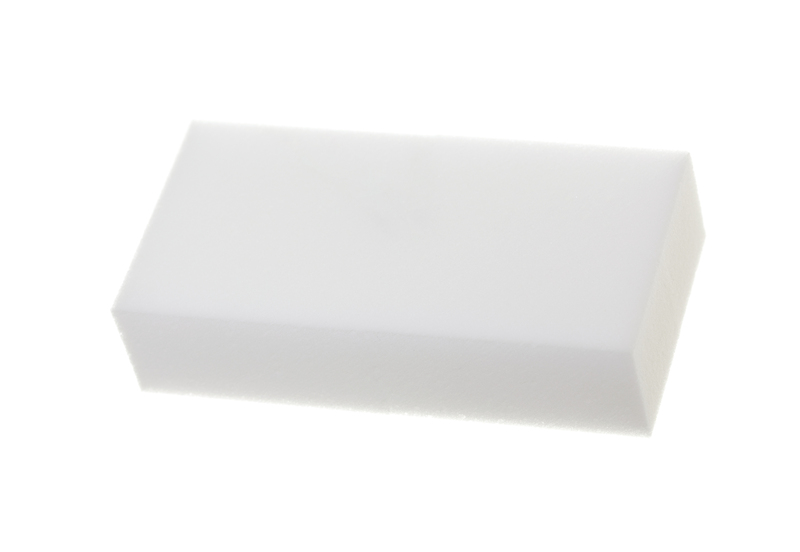House Cleaning Demystified: A Tenant's Guide at Tenancy End
Posted on 23/08/2025
House Cleaning Demystified: A Tenant's Guide at Tenancy End
Moving out of a rented property can be both exciting and stressful. One major responsibility tenants face is ensuring that the property is spotless before handing the keys back to the landlord or letting agent. Completing a thorough end-of-tenancy cleaning not only secures your deposit but also paves the way for a positive landlord reference.
In this comprehensive guide, we'll uncover the essentials of house cleaning at tenancy end, provide tips that save time and effort, and detail what landlords expect during handover. By following the strategies below, tenants can leave their rented home in excellent condition and safeguard their deposit.
Why Is End of Tenancy Cleaning Important?
It's easy to underestimate the role of thorough end-of-tenancy cleaning. However, failing to clean your rental property can result in substantial deposit deductions or even legal disputes. Landlords need assurance that their property is ready for future tenants, and a sparkling clean house checks this crucial box.
- Deposit Protection: Most tenancy agreements require that the property be as clean as it was at the start. Poor cleaning is one of the leading causes of deposit disputes.
- Positive References: Leaving a rental clean and tidy encourages a good reference from your landlord.
- Legal Compliance: Some leases and agencies have strict end-of-tenancy cleaning requirements.
- Respect: Cleaning the property shows respect for the landlord and future tenants.

Understanding Your Tenancy Agreement
Before embarking on house cleaning at tenancy end, scrutinize your tenancy agreement. Many agreements specify the standard of cleaning expected or may even require professional cleaning for some areas like carpets or upholstery. Check to see if receipts for professional cleaning are required--some agencies insist on them. Knowing these details prevents unpleasant surprises.
Checklist: What to Look for in Your Contract
- Obligations for professional cleaning (e.g., carpets, curtains)
- Cleaning of appliances (oven, fridge, washing machine)
- Exterior areas (gardens, patios, garages, bins)
- Requirements for pets (removal of pet odours, deep cleaning)
- Inventory checks - match cleanliness to the property condition at move-in
End of Tenancy Cleaning: The Golden Rule
The golden rule of end-of-tenancy house cleaning is simple: restore the property to its original, move-in condition. This means every nook and cranny should be addressed, and attention to detail is paramount for reclaiming your full deposit.
DIY or Professional Cleaning?
Deciding between doing it yourself or hiring professional cleaners depends on several factors:
- Time constraints
- Property size and current condition
- Special cleaning requirements (e.g., stain treatments, professional carpet cleaning)
- Your cleaning abilities and equipment available
If you opt to do it yourself, this guide will help you tackle each area systematically. Otherwise, hiring a vetted cleaning service can free up your time and might be necessary for specialty tasks.
Step-by-Step House Cleaning at Tenancy End
Let's break down the cleaning process room by room, ensuring nothing is missed.
General Tips Before Starting
- Gather all cleaning supplies before you begin
- Remove personal belongings and rubbish
- Work from top to bottom and back to front to avoid re-soiling cleaned areas
- Document the condition with photos or a checklist before locking up
1. Kitchen Cleaning Demystified
The kitchen is notorious for stubborn grime. Focus on the following:
- Oven & Hob: Clean all trays, racks, and knobs. Use oven cleaner for built-up grease.
- Fridge & Freezer: Empty, defrost, and wipe down interior and exterior surfaces. Remove all food.
- Sink & Taps: Remove any limescale and polish taps.
- Worktops & Cabinets: Wipe all surfaces inside and out. Check for spills and crumbs in corners.
- Flooring: Sweep and mop thoroughly.
- Dishwasher & Washing Machine: Clean trays, filters, seals, and run a hot cycle with cleaner.
2. Bathroom Deep Clean
- Toilet: Scrub bowl, seat, lid, and base. Don't forget the flush handle or button.
- Bath, Shower & Sink: Remove soap scum, hair, and limescale. Polish tiles and glass screens.
- Mirrors: Wipe free from streaks using glass cleaner or vinegar solution.
- Extraction Fans: Clean dust from covers and blades.
- Floors & Grout: Disinfect and remove mould or mildew stains.
3. Living Rooms & Bedrooms
- Dust & Wipe: All surfaces, skirting boards, light fittings, and switches.
- Windows: Clean inside (and outside if safe to do so).
- Floors: Vacuum carpets or mop hard floors. Consider professional carpet cleaning for stains or odours.
- Furniture: Clean underneath and behind movable pieces.
- Wardrobes & Shelves: Remove dust, debris, and forgotten items.
4. Hallways, Stairs, and Entryways
- Dust bannisters, rails, and skirting boards
- Clean light fixtures and any storage closets
- Wipe doors, door frames, and handles
- Hoover or mop floors, paying attention to corners
5. Exterior Areas
- Trim gardens, remove weeds, mow lawn
- Sweep patios, paths, and garages
- Remove all rubbish from bins and storage areas
Note: Some tenancies require tenants to leave gardens tidy and sheds empty and swept.
Essential Tools & Cleaning Products
- Oven cleaner and degreaser
- Descaling spray for bathrooms
- Multi-surface spray and disinfectant
- Microfiber cloths and sponges
- Glass cleaner or vinegar solution
- Vacuum cleaner and mop
- Rubber gloves and garbage bags
Remember to use eco-friendly options where possible to minimize environmental impact and keep the property free from harsh chemical residues.
Common Cleaning Mistakes Tenants Make
- Overlooking hidden areas: Behind appliances, in drawers, under beds--these often get missed.
- Ignoring marks on walls and doors: Wipe scuff marks and fingerprints with a gentle cleaner.
- Leaving rubbish behind: Ensure all bins (including outside!) are emptied and cleaned.
- Forgetting keyhand-back requirements: Check if keys must be returned in person or at a specific time.
- Not documenting cleaning: Take clear pictures after cleaning, as proof for the landlord or agent.
How to Handle Stubborn Stains and Odours
Occasionally, stains or odours prove tough to remove using standard cleaning methods. Here's what you can do:
- For carpet stains, use a specialist stain remover or book a professional clean if severe.
- Neutralize pet or food odours by ventilating rooms and using baking soda or vinegar solutions.
- For mould or damp, thoroughly clean with anti-mould cleaner; persistent issues should be reported to the landlord.
Professional End of Tenancy Cleaning: Pros & Cons
Hiring professionals is sometimes preferable--or even mandatory. Here are some points to consider:
Pros:- Saves significant time and energy
- Ensures high standards to meet agency or landlord expectations
- Receipts and paperwork serve as proof, should any disputes arise
- Additional cost to the tenant
- Some cleaning companies may not cover every required area--always check what's included
If your contract requires professional cleaning, book early to secure your preferred date. Check Google reviews and testimonials to choose a reputable provider.
Document Your Success
Always photograph each room after cleaning and compile a checklist matching the property's inventory. This is your best defence should disputes arise over the condition of the property.
Final Steps: The Last Checks Before Handover
- Return everything to its original place according to the inventory
- Test smoke alarms and replace batteries if needed
- Ensure all windows and doors are secure
- Switch off all appliances and heating
- Take meter readings and notify utility providers

Summary: House Cleaning Demystified for Every Tenant
House cleaning at the end of a tenancy doesn't need to be a mysterious or overwhelming process. By understanding your cleaning responsibilities, using the right products and techniques, and documenting your efforts, you can hand back the keys with total peace of mind.
- Start early: Allocate sufficient time for deep cleaning
- Refer to your tenancy agreement: Follow all specific requirements
- Be thorough: Attention to detail is critical for a full deposit return
- Don't be afraid to go professional: In some cases, expert help is the best solution
Frequently Asked Questions
- How long does end of tenancy cleaning take?
Depending on property size, thorough cleaning can take anywhere from a few hours for a studio to two days for larger homes. - Can my landlord charge for cleaning?
Yes, if you fail to leave the property in acceptable condition, landlords may arrange cleaning and deduct costs from your deposit. - Do I need a professional cleaning certificate?
Some agencies require this; check your contract.
Conclusion
Demystifying house cleaning at the end of a tenancy is all about preparation, diligence, and clarity on what's expected. Whether you clean yourself or bring in professionals, leave no area overlooked. Not only does this secure your financial interests, but it also earns goodwill from your landlord--opening doors for positive references in future rentals.
With a well-planned approach and willingness to tackle every corner, house cleaning at tenancy end can be a straightforward, rewarding process. Start now to ensure a stress-free move and your deposit safely returned!
Latest Posts
Simple Techniques to Prevent Mold in Your Bathroom
Transform Washing Sofa Covers into a No-Shrink Experience
Create a Pet Odor-Free Sanctuary in Your Home




